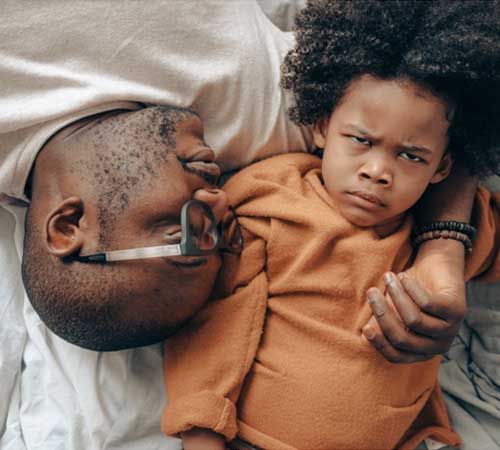 Colon cancer or colorectal cancer begins in the large intestine (colon) considered as the final part of the digestive tract.
Colon cancer or colorectal cancer begins in the large intestine (colon) considered as the final part of the digestive tract.
It is common among adults, but recent reports show that the age range is changing, with younger persons increasingly becoming affected.
It is the cause of the death of the popular Black Panther star, Chadwick Boseman. A sad moment for the entertainment industry.
Sadly, colon cancer doesn’t affect men alone, as a 2009 research, showed that there are similar incidence rates for cancer of the colon in both males and females.
Globally, colon cancer accounts for over 9% of all cancer incidence and it is the third most common cancer worldwide. It is also the fourth most common cause of death.
Australia, New Zealand, Canada, the United States, and parts of Europe are top countries with cases of colon cancer.
The countries with the lowest risk include China, India, and parts of Africa and South America. Could this be as a result of their diet?
Incidents of Colon cancer are not also high in Nigeria, but there is a need for lifestyle caution.
1. Where Does Colon Cancer Form?
Colon cancer is a tumour in the colon. The colon is also called the large intestine.
The ileum (last part of the small intestine) connects to the cecum (first part of the colon) in the lower right abdomen.
2. What Is The Cause Of Colon Cancer?
There is no specific cause of this form of cancer, but experts say it forms when the DNA in cells in the colon or rectum begin to act differently.
They develop mutations that may make them unable to control growth and division.
In many cases, these mutated cells die or are attacked by the immune system.
Sadly, some mutated cells may escape the immune system and grow out of control. These mutated cells go-ahead to form a tumor in the colon or rectum.
While there is no major known cause of this cancer, there are certain conditions that increase risk.
Your diet, tobacco smoking, and heavy alcohol intake are some of them.
Also, people with certain hereditary cancer syndromes or a family history of colorectal cancer have a high risk of developing the disease.
3. Who Is At Risk
Different factors also contribute to making one susceptible to this cancer.
Age
According to research, the likelihood of colon cancer diagnosis increases after the age of 40 and rises sharply after age 50.
More than 90% of colorectal cancer cases occur in people in their 50s and above.
Because lifestyle plays a role, younger persons are, also coming down with colon cancer.
Hereditary
Like other diseases, there are indications that inherited genes, shared environmental factors or a combination of these influences may increase a person’s colon cancer risks.
Race
According to the Cancer Center, “African Americans have the highest incidence of colorectal cancer in the United States.
“Ashkenazi Jews also have a higher risk of developing the disease”.
Other Conditions
Also, some other medical conditions increase an individual’s risk of having colon cancer.
Again, the Cancer Center says people who are obese and diabetic are prone to this form of cancer.
This may not be unconnected with the findings that tumours feed on sugar.
4. What Are The Symptoms?
Researches say this colon cancer does not show much at the early stage.
There may be minor symptoms or none at all.
Also, symptoms may not develop until the disease has progressed into the second stage.
Since most cancers in the colon develop from polyps, there is a need for screening.
Such screening will reveal if polyps are there. They could be removed early to stop them from growing into cancer.
However, here are some early warning signs to watch out for – Sudden weight loss and/or narrow, ribbon-like stools, rectal bleeding, either bright or dark red in color, narrow stools, tenesmus, which is the feeling that you have to empty your bowel but nothing passes, anemia caused by iron deficiency and persistent abdominal pain.
Please, note that these could also be symptoms of other less serious conditions that are not colon cancer.
This emphasizes the need for diagnosis.
5. What Is The Diagnosis
With a proper diagnosis, a good treatment plan would be developed.
To find out what treatment plans a patient needs, physicians could recommend; lab tests, endoscopic procedures, biopsies, CT scan, MRI, PET/CT Scan, Ultrasound, and Barium Enema.
6. What Is The Treatment For Colon Cancer?
There are several ways of treating colon cancer and they are – surgery, chemotherapy, immunotherapy, radiation therapy, and targeted therapy.
Also, there are indications that herbal medicine could also help in the treatment of colon cancer.
A 2014 study showed that a combination of PAM+V (Pan-Asian medicine + vitamins) with conventional therapy improved survival, compared with conventional therapy alone.
According to the research, this outcome suggests that prospective trials combining PAM+V with conventional therapy are justified.
7. Prevention And Natural Colon Cleansing Remedies
One of the very things nutrition and wellness experts recommend is the prevention of this cancer.
Of a truth, prevention is better, since it takes away the risk of coming down with cancer.
Although further research is needed to be certain of how best to combine these natural remedies, cleaning the colon is one way of preventing cancer.
Here are suggestions from a health and wellness coach.
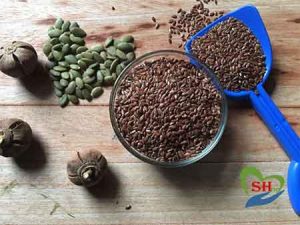
Have You Read: Practical Life Exercises To Teach Your Kids At Home
As stated earlier, lifestyle plays a role in increasing the risk of colon cancer, and since this is so, adjusting lifestyle ultimately lowers the risk of getting cancer.
To cleanse the colon regularly, certain foods have been recommended, but you have to begin with water.
Drink Water Consciously
Taking water consciously is something most persons do not do. The colon needs water to digest food properly and clear the road for more.
If you find it difficult to drink water when you are not thirsty, this is a time to change that attitude.
People who work in offices and sit in the same position for long hours are most affected.
Always keep a glass or bottle of water near you and each time you look at it, you will remember to drink.
Leafy Greens
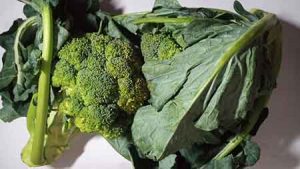
Another suggested food to add to your diet is vegetables.
Dark leafy greens or the ones called cruciferous vegetables are good for colon cleansing.
They are rich in fibre and low in fat and calories.
They also contain vitamins and minerals that needed in your body.
Also, vegetables contain antioxidants that clean the system.
Spinach, kale, cabbage, and cauliflower are other great veggies to add to your diet as often as you can as they all cleanse the colon.
Chai And Flaxseeds
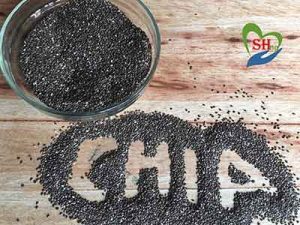
Chia and flax seeds are great for colon cleansing and that is because they are also high in fibre.
They contain Omega-3 fatty acids that reduce inflammation in the colon.
These also help in removing toxins that may have built-up in the colon.
Add them to your meals. Interestingly, they could be chewed raw or added to your fruit or vegetable juice when blending them.
Apple Cider Vinegar And Honey
This could form a juice when mixed in a glass of water
Apple Cider is full of healthy bacteria for your stomach.
You can add this to your water in the morning and add honey to it.
Also, apples are rich in fibre and contain pectin which assists in removing toxins and building a stronger intestinal lining.
Lemon
This is a citrus fruit that is exceptionally good for your intestines.
Basically, lemon is good for detoxification. It acts as an antiseptic, reducing waste matter build-up.
Lemon also hinder the growth of harmful microorganisms.
Eat Whole Grains
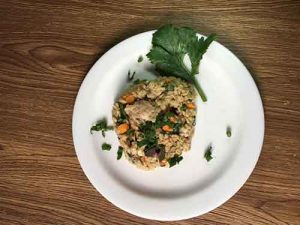
Here is where most persons fall short.
People neglect whole-grain foods a lot.
Sadly, rice is our major meal here in Nigeria One of the most consumed meals in Nigeria is white rice and this is not so beneficial to the body.
Consciously adding foods like brown rice, red rice, red kidney beans, oats to our diets will provide the colon enough fibre needed for cleansing.
Limit Red Meat Intake
As an individual advances in age, the digestion of red meat in the intestine slows down. It is important that every adult cut down the intake of red meat, as research has also shown that it increases the chances of this cancer.
Really, eating a lot of red and processed meat could increase your risk of bowel (colorectal) cancer.
It is recommended that people who eat more than 90 grams of cooked weight of processed meat per day cut down.
For adults, we recommend a gradual exclusion of red meat from your diet. Eat more of scale fish.
Bottom Line
Unfortunately, some Nigerians are often tilting to the consumption of processed food.
Indeed, this could result in more health issues in the future.
Despite the fact that the prevalence of this form of cancer is low here, eating more of whole grain is necessary to aid cleansing of the colon and reduce risk.
Kindly share this article with your friends and loved ones to enable them to know more about colon cancer.


